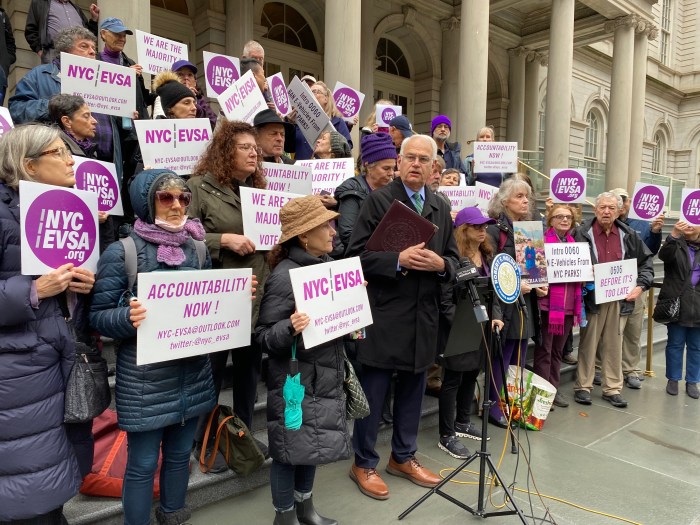Members of the MTA board are questioning the agency’s interpretation and recording of data following a news report that the agency possibly exaggerated the number of train delays relating to power issues.
The report, published by the Daily News on Sunday, seized on leaked emails between the MTA and the office of Gov. Andrew Cuomo this summer that appear to show the two offices working to beef up the number of train delays relating to power failures in order to help the governor place blame on Con Edison for failing subway service.
Ultimately, the MTA appears to have applied broader definitions to quadruple the number of delays in the subway system that are related to power, from 8,000 to 32,000. Cuomo denied any involvement on Sunday and deferred comment to the MTA.
Each month, the MTA publishes data breaking down the number of train delays by category — and “power” is not one of them. Board member Carl Weisbrod, an appointee of Mayor Bill de Blasio, pointed out that fact and challenged what he described as the agency’s “shifting definitions” of delay causes.
“I’m a little confused about why we don’t even have power-related delays as an indicator,” Weisbrod said at a transit committee meeting Monday. “Why not, if that is in fact a major reason for delays?
“We have had this big discussion, at least in the press, about power-related delays,” he continued, “and I don’t even see the relevance of it if we don’t in fact track power-related delays or if that’s not a separate category.”
MTA chairman Joe Lhota explained he’d rather the data break down the “granular nature of the delay,” or something the agency could actually address — like a track issue or water leak — and not power, which is controlled by Con Edison.
“I’d rather go to the root cause of the problem and address it that way where we have an opportunity to make a difference,” Lhota said.
But there was an unanswered debate about what constitutes a root cause of a delay — was it an “infrastructure” delay, as MTA data might define it? Or a power problem that led to the infrastructure’s failing?
“The signal may be out because there was a surge and the surge trips any one of our signals — a surge or a decline in the quality coming in,” Lhota said. “That’s a signal-related issue and we’re working with Con Ed on their quality, and their quality since we’ve started working jointly has gotten immeasurably better.”
That was not clarification enough for Veronica Vanterpool, a fellow de Blasio appointee to the board.
“In terms of ensuring that the public has confidence in the MTA, these sorts of allegations can be very damaging and I was not satisfied with the responses given,” Vanterpool said after the meeting.
Board members also questioned delays attributed to “overcrowding,” which have risen from 26,049 weekday delays in November 2016 to 28,761 weekday delays in November of last year — even as subway ridership has declined over that period. Transit advocates and experts argue that overcrowding is more of a symptom of poor service, not a direct cause of it.
That’s when new NYC Transit president Andy Byford jumped in, explaining that there were legitimate and illegitimate situations for attributing overcrowding as the source of a delay. He reasoned that it was accurate to record a delay as an issue of overcrowding if trains were held at stations because of naturally built-up crowds.
“What would not be legitimate is if the reason the station was really crowded, and therefore there’s loads of people waiting to get on, is because of a signal failure that was causing a big gap,” he said.
After the meeting, Byford deflected questions from reporters on the Daily News story, saying he was not at the agency at the time when the numbers were crunched. But when asked if he trusts the data the MTA has given him during his first days on the job, Byford didn’t answer definitively.
“It’s too early to form an opinion on that,” he said. “We have very capable people here at New York City Transit and certainly I’d expect to be able to trust it. I would certainly expect to be able to rely on my people; I will hold them to account for that.”



































